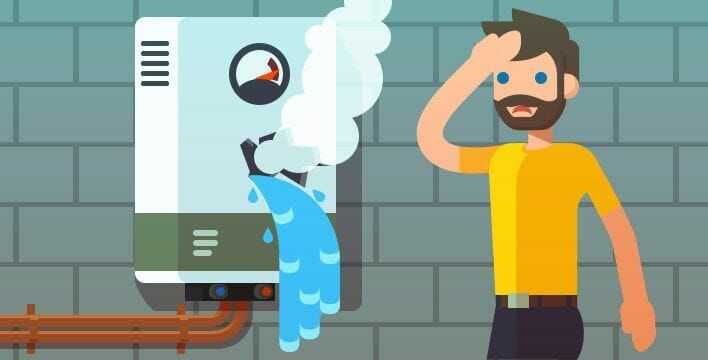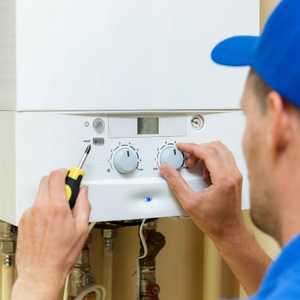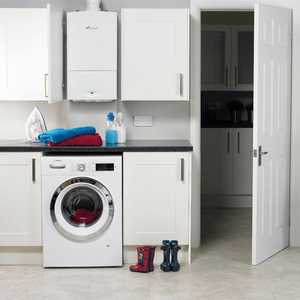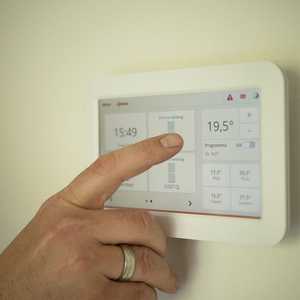11 Signs Your Broken Boiler Might Need Replacing
A household boiler is responsible for about 60% of the energy bills, but is it time for a replacement? Read on to find out if you have a broken boiler.

Do you have a broken boiler?
If a man's home is his castle, the boiler would be his hardest working servant. A regular household boiler is responsible for about 60% of the energy bills but often remains under-appreciated.
A broken boiler can cause mayhem in the everyday routine - with no heating and hot water, you're left vulnerable to the winter cold. The costs to fix a broken boiler are a nuisance as well, plus there is no guarantee how long the repairs will last. A regular gas boiler service, which comes with a boiler service certificate, is recommended.
Even though boiler breakages are expensive, unpredictable, and stressful, people are still hesitant when it comes to broken boiler replacements. After all, fitting a whole new boiler costs a lot more than paying for one repair at a time.
If none of the below issues apply to your boiler, it might need a quick repair - check out our boiler repair services now.
Your boiler is 10 or more years old.
Even if the boiler is working fine, after ten or more years it's a good idea to start thinking of a replacement. Chances are that some parts have worn off, and breakages will be inevitable. As your boiler ages, the original parts become harder to find and therefore more expensive. Of course, before making any big financial decisions, make sure to consult an engineer.
You call the Heating Engineer more often than some of your distant relatives.
An occasional breakdown is completely normal, especially if you don't service your boiler regularly. But if your boiler keeps being temperamental, and you have a separate budget for repairs, the time has come to upgrade.
Your radiators take longer to heat up.
A healthy boiler will heat up almost instantly, and radiators should not take much longer to follow. If they remain cold after 10-20 minutes the boiler might not be working to its full capacity. Even if the problem is not with the boiler, your heating system will still need a check-up. Sludge build-up not only causes blockages but can damage your boiler as well.
There is a strange smell around.
At first you might suspect that someone has missed a daily shower or two. But the unpleasant smell keeps lingering around the boiler. Don't panic, but you'll need to call a professional as soon as possible! The smell could indicate a carbon monoxide leak. CO2is actually odourless and tasteless but the smell comes because the leak is preventing the boiler from burning properly. CO2is highly poisonous, and potentially fatal, so signs of a leak must never be ignored! For more detailed information on how to protect yourself from carbon monoxide, check out our blog on "The Dangers of Carbon Monoxide: How to Protect Yourself"..
The blue flame changes to yellow.
This is related to the previous point. To put it simply, a yellow flame means there's an incomplete combustion, which is producing dangerous carbon monoxide. If you end up calling Gas Safe more than a couple of times, perhaps you should think adding a new boiler to your wish list.
You keep adding layers when at home.
Having the heating on low and putting on an additional layer of clothes can reduce the energy bill. However, if you notice that you keep shivering, although the heating is set to your usual programme, it might be a sign of an aging boiler.
The boiler is making noises.
Kettling, clunking, banging and any unusual loud noises indicate a number of issues. It might be a broken valve, a build-up of limescale or a pressure problem. While it could be a one-off repair, it is also a sign that the boiler is past its prime years.
There is a puddle on the floor.
The first time it happens you can easily brush it off as an unfortunate spillage that someone forgot to clean. But a reappearing puddle signifies a broken internal part, or even that the boiler has started to fall apart.
The water temperature is inconsistent.
You turn on the hot faucet and it takes a while for hot water to start coming through. The shower temperature is fluctuating, the water runs hot, then cold, then hot again. If repairs don't help, this is a strong sign your boiler needs replacing.
Your pipes freeze when the temperatures drop.
The heat circulating in the pipes keeps them from freezing. A faulty boiler might not be able to push heat successfully, and as a result your pipes can freeze overnight. Double trouble! If you experience a frozen pipe problem, make sure your boiler gets a health-check as well.
Your energy bills are increasing without an obvious reason.
Of course an annual increase due to inflation and raising market prices is nothing to be suspicious of. Trust us, you'll be able to tell when your bills have increased disproportionately through the year. A fast increase in energy consumption could be caused by an inefficient boiler. The older the boiler, the more it costs to run. You can check you boiler's efficiency rating on the ErP energy label; A-rated is the most efficient you can get, while G means less than 70% efficiency.
Investing in a new boiler is a big financial and household decision that requires extensive planning. According to a research commissioned by USwitch, nearly a fifth of consumers - the equivalent of over four million households - have experienced at least one broken boiler breakdown in the last 12 months.
4% of those experiencing a breakdown - the equivalent of almost 185,000 households - faced a repair bill that exceeded £1,250, which is the average price of a new boiler.
When you notice the signs of your boiler getting old, don't delay replacing it until the last minute. With more time on your hands, you'll have the chance to research, speak to professionals, and find the best boiler for your home.
Thinking of replacing your boiler soon? Get your FREE Rightio quote now. We also offer plumbing repairs and services for blocked drains.
For more Rightio news, live updates, and handy tips, follow us on Facebook and Twitter.
Related advice
There are plenty of actions you can take to help keep your home in check. Take a look here for the latest guides, advice and tips from our experts!
View our latest advice







